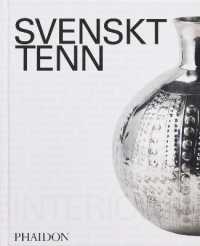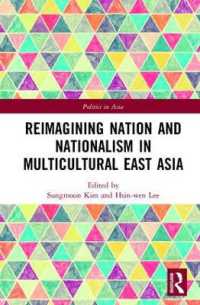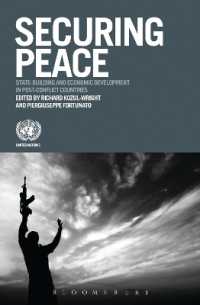- ホーム
- > 洋書
- > 英文書
- > Literary Criticism
Full Description
A watershed moment of the twentieth century, the end of empire saw upheavals to global power structures and national identities. However, decolonisation profoundly affected individual subjectivities too. Life Writing After Empire examines how people around the globe have made sense of the post-imperial condition through the practice of life writing in its multifarious expressions, from auto/biography through travel writing to oral history and photography. Through interdisciplinary approaches that draw on literature and history alike, the contributors explore how we might approach these genres differently in order to understand how individual life writing reflects broader societal changes. From far-flung corners of the former British Empire, people have turned to life writing to manage painful or nostalgic memories, as well as to think about the past and future of the nation anew through the personal experience. In a range of innovative and insightful contributions, some of the foremost scholars of the field challenge the way we think about narrative, memory and identity after empire. This book was originally published as a special issue of Life Writing.
Contents
Introduction: Life Writing After Empire 1. Collusions and Imbrications: Life Writing and Colonial Spaces 2. Tears and Garlands: Lim Chin Siong, Coldstore, and the End(s) of Narrative 3. 'National Awakening', Autobiography, and the Invention of Manning Clark 4. The Relational Imaginary of M.G. Vassanji's A Place Within 5. 'A Nation on the Move': The Indian Constitution, Life Writing and Cosmopolitanism 6. 'This Union-Jacked Time': Memories of Education as Post-Imperial Positioning 7. Gibraltarian Oral Histories: Walking the Line Between Critical Distance and Subjectivity 8. Review: How Empire Shaped Us, edited by Antoinette Burton and Dane Kennedy Afterword - The Ends of Empire: In memory of Bart Moore-Gilbert, 1952-2015








